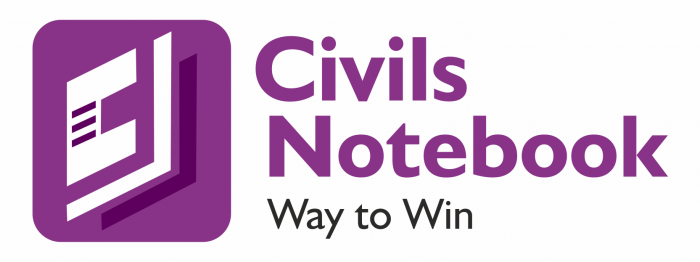Byelections to Mainpuri, 5 Assembly seats on Dec. 5
Five assembly seats in as many states, and the Mainpuri Lok Sabha seat in Uttar Pradesh will vote in by-elections on December 5, the Election Commission has announced.
About bye-elections
- ‘Election’ simply refers to the act of choosing someone for an official job, in a formal and organised manner, usually done by way of voting.
- Bye-elections refer to such elections that are conducted to fill previously elected offices that have fallen vacant, before the completion of tenure of such elected offices.
- In other words, when the Election Commission of India (ECI) conducts an election to fill up vacancies in seats of either House of Parliament or either House of State Legislature before the normal term of expiration to frictionlessly continue the democratic process, without waiting for the next General Election to commence, it is called bye-election in India.
- Bye-elections (also known as By-elections or Special elections) are commonly referred to as ‘by-polls’ in India.
- They derive their legitimacy in India from the Representation of People Act (RPA), 1956 where the term ‘Bye-election’ finds its mention.
- A member elected by a bye-election will have a term of office equal to the remaining tenure of the preceding member.
Delhi’s air quality improves slightly to ‘very poor’
- Air quality in Delhi has improved to ‘very poor’ from ‘severe’ category in the last 24 hours.
- As per System of Air Quality & Weather Forecasting & Research (SAFAR), Air Quality Index (AQI) on Tuesday morning stood at 372.
- A significant improvement from the condition on Monday morning, when the AQI stood at 432.
- On Thursday, the air quality in the national capital slipped to the severe category and continued to move upwards the next day.
- On Friday noon, the AQI stood at 462.
- In Delhi, the air quality was the poorest in five years post Diwali celebration along with rise in incidents of stubble burning in neighbouring states.
- However, from Saturday, the air quality started improving in the city due to the high wind speed.
- The AQI in the national capital at 449 on Saturday morning. On Sunday morning it stood at 436, while in the evening it improved further.
- The air quality entered the ‘very poor’ category in Gurugram also, with AQI standing at 390, as per SAFAR.
About air quality index
The Air Quality Index is acquired by measuring emissions of eight major pollutants present in the air:
- Particulate matter (PM2.5)
- PM10,
- Ozone (O3),
- Carbon Monoxide (CO),
- Nitrogen Dioxide (NO2),
- Sulphur Dioxide (SO2),
- Lead (Pb) and
- Ammonia (NH3) emissions.
Navy chiefs of Quad in Japan ahead of Malabar Exercise
- The navy chiefs of India and its partners in Quad – Japan, Australia and the United States – met in Yokosuka near Tokyo on Saturday amid increasing movement of Russian and Chinese surveillance ships in the Indo-Pacific region.
- Indian Navy chief Admiral R Hari Kumar joined his Japanese, Australian and American counterparts for the meeting, which took place ahead of the Malabar 2022 exercise that will see the warships of the four nations conducting drills
- The navy chiefs of the four nations exchanged views on further enhancing interoperability in future editions of the Malabar drill
- The Indian Navy ships, INS Shivalik and INS Kamorta, arrived at Yokosuka in Japan on November 2 to participate in the Malabar-2022 drill and an International Fleet Review, which would be conducted by Japan Maritime Self-Defence Force on November 6.
About QUAD
- It is the grouping of four democracies –India, Australia, the US, and Japan.
- All four nations find a common ground of being democratic nations and also support the common interest of unhindered maritime trade and security.
- It aims to ensure and support a “free, open and prosperous” Indo-Pacific region.
- The idea of Quad was first mooted by Japanese Prime Minister Shinzo Abe in 2007. However, the idea couldn’t move ahead with Australia pulling out of it, apparently due to Chinese pressure.
- Finally in 2017, India, Australia, the US and Japan, came together and formed this “quadrilateral” coalition.
2 cheetahs in Kuno National Park released into enclosure
- Two of the eight cheetahs inside the Kuno National Park (KNP) in Madhya Pradesh were on Saturday released into an acclimatisation enclosure from the quarantine area where they were kept since their translocation from Namibia in September, an official said.
- “The remaining six cheetahs will also be released in a phased manner,” KNP Divisional Forest Officer Prakash Kumar Verma added.
- The enclosure is an area of more than five square km, officials said.
- Eventually, the eight cheetahs will be released into the wild as per plans.
Shyam Saran Negi, Independent India’s first voter, dies
- Shyam Saran Negi is thought to have been the first person to cast a ballot when India held its first general election after gaining independence from British rule.
- Mr Negi has voted in every election since then.
- The centenarian had cast his ballot just three days ago before his death on Saturday, in the assembly elections for his state of Himachal Pradesh.
- The retired teacher is thought to be the first person to vote in an independent India because his state opened polling booths five months early in 1951 for the 1952 election to avoid heavy snow
About First General Election of India
- The first Lok Sabha was elected in the first general elections of independent India.
- Since August 1947, the country was run by an interim legislature called the Indian Constituent Assembly.
- Elections were held on the basis of universal adult suffrage and anyone over the age of 21 years could cast his/her franchise.
- The 53 political parties contested for 489 seats. There were about 1874 candidates from various parties. There were 401 constituencies and some had multiple seats. In the 1960s, the multi-seat constituencies were done away with.
- Out of a total population of 36 crore, about 17.32 crore were eligible to vote. There was a turnout of 45% in the first general elections.
- The INC won the elections in a big way. It received four times as many votes as the second-largest party. INC won 364 seats and the Communist Party of India (CPI) was second with 16 seats. Almost 45% of the votes went in INC’s favour.
- Before the elections, a mock election was held in September 1951 since most people of the country were unfamiliar with the election process.
- The first Election Commissioner of India was Sukumar Sen.
- 2 members of the Anglo-Indian community were nominated to the Lok Sabha.
- Prominent winners were Nehru, Lal Bahadur Shastri, Sucheta Kripalani, Gulzari Lal Nanda, Kakasaheb Kalelkar, Shyama Prasad Mukherjee, etc.
- B R Ambedakar lost to INC candidate Narayan Sadoba Kajrolkar in the Bombay (North-Central) seat. Ambedkar stood as a Scheduled Castes Federation (party) candidate. Acharya Kripalani also lost from Faizabad, Uttar Pradesh.
- Although elections started in October 1951, most of the country voted in January-February of 1952
Over 64,000 people in India die of snakebites each year
- That snakebite (a neglected tropical disease) is a public health problem in India and many other low- and middle-income countries has been long known.
- But a global estimate of deaths due to snakebite was not known till recently.
- A study that our group, along with researchers from 21 other countries, published in Nature Communications recently estimated that a vast
- majority of snakebite deaths globally — up to 64,100 of the 78,600 deaths — occur in India.
- The study also suggests that the global target of halving the number of deaths and injuries from snakebite by 2030 is unlikely to be met
80% of global deaths
- The study used data from verbal autopsy and vital statistics (civil registration) to estimate snakebite deaths from the Global Burden of Disease 2019 study.
- The global estimate of deaths due to snakebite comes 14 years after the previous one in 2008 and provides a more robust estimate.
- Before the current study, it was known that India is responsible for up to half of the global deaths due to snakebite. But the current study shows snakebite deaths in India are much higher at almost 80% of the global deaths.
- Within India, Uttar Pradesh has the highest number of deaths, estimated to be up to 16,100, followed by Madhya Pradesh (up to 5,790 deaths), and Rajasthan (up to 5,230 deaths).
- The study estimated that the age-standardised death rate (which accounts for different age-structures in different countries, thus allowing comparison between countries) in India, at 4.0 per 1,00,000, is also among the highest globally, and many times over than the global figure of 0.8 deaths per 1,00,000.
- Only Somalia has a higher age-standardised death rate than India at 4.5 per 1,00,000.
- This indicates a failing health system in India and Somalia leading to high deaths in those who are bitten by venomous snakes.
- Within India, Chhattisgarh, Uttar Pradesh, and Rajasthan have even higher age-standardised death rates, at 6.5, 6.0, and 5.8 per 1,00,000, respectively.
The comeback ‘king’ ; Benjamin Netanyahu
- In his long political career that started in the early 1990s, Benjamin ‘Bibi’ Netanyahu was written off several times.
- And every time, he made a stronger comeback.
- In 1996, he became Israel’s youngest Prime Minister, and the first to be born in the state of Israel. After losing the 1999 election heavily to Labour’s Ehud Barak, Mr. Netanyahu would go for a brief retirement, but would return to power in 2009.
- His hold over Israeli politics would be challenged again in 2019 after the fall of his government.
- In back-to-back elections, Mr. Netanyahu failed to form a stable coalition and three corruption cases cast shadows over his career.
- In 2021, his rivals from across Israel’s political spectrum joined hands to form a coalition with the main goal of keeping Bibi out of power.
- But after 17 months in opposition, Mr. Netanyahu made another stunning comeback this week, with his right-religious coalition securing a comfortable majority in the Knesset, the Israeli Parliament.
- The era of Mr. Netanyahu, ‘King Bibi’ for his loyal supporters, is a present continuous one.
Russia become indias largestsupplier of crude oil & Fifth biggest trade partner
Vadodara become the 2nd to issued Municipal Bond
Isudan Gadhvi named as AAP’s Chief Ministerial candidate for Gujarat
US Treasury Secretary Janet Yellen will be visiting India to strengthen US-India economic ties
National Legal Services Authority (NALSA) Campaign has been launched by Justice Chandrachud to promote inclusivity
Source : THE HINDU

